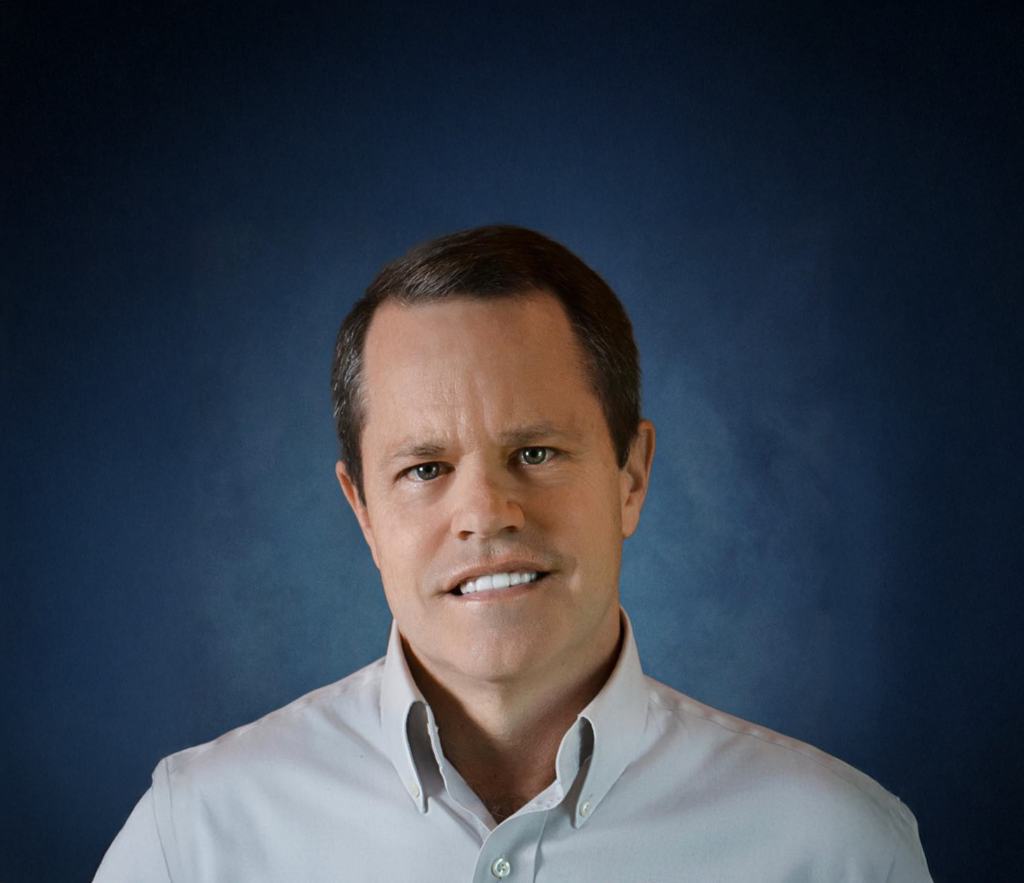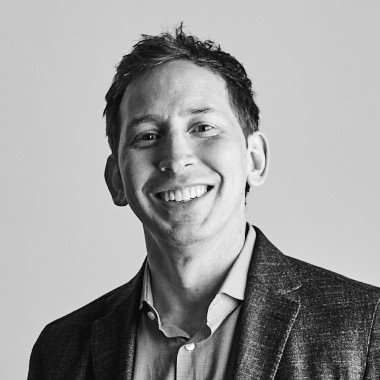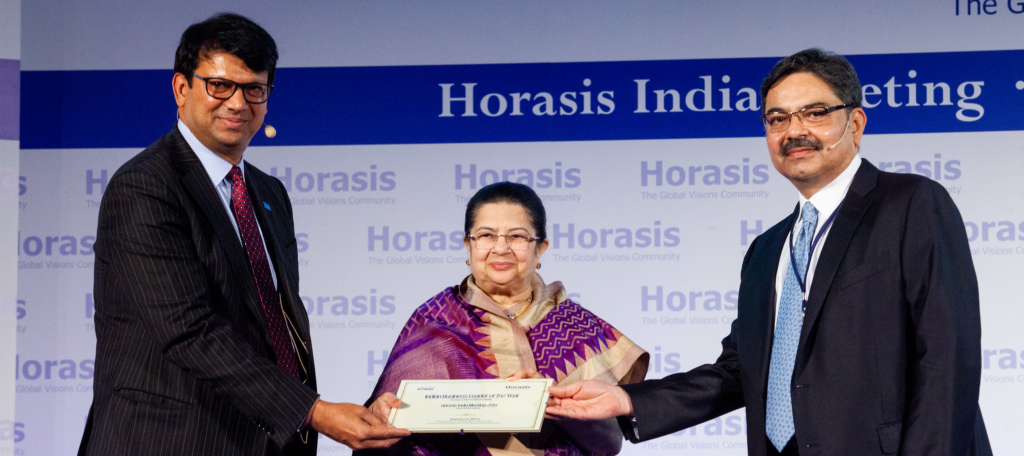“One of the biggest shocks [of going into prison] is the feeling of when a door slams, the clang of the door slamming, the key being turned and the knowledge that one is helpless in that situation to leave,” Baillie Aaron said. “When freedom is being taken away, even if you know it’s temporary, that is a challenging emotion.”
This is how Aaron explained her first visit to a prison. Startupbeat spoke to her in an interview, where we spoke about how her new project, Spark Inside, tries to remove the ‘us vs. them’ mentality, how anger can transform into a deadly black mass, and how frustrating it is that hard evidence isn’t enough to sway public opinion.
Aaron studied behavioural economics at a college in the US and subsequently started a non-profit company called Venturing Out, an entrepreneurship program for people serving time in prisons in the US, where she gained direct experience of what the inside of a prison looks and feels like. She realised that the people she interacted with were just that, people, and by challenging her beliefs about prisons she was much more open to seeing the possibilities lurking beneath.
“[What I realised] was just how much latent potential there is in the prison system and I also gained a deep understanding of the reasons why people were there,” she told us. “There was always a reason for how people ended up doing the things that they did, which were illegal. There is a story behind each crime but it was also apparent that there’s a story out of each crime that could be told too.”
Spark Inside is a UK-based charity that focuses on rehabilitating young offenders using coaching techniques to allow them to develop a path for themselves that leads away from crime and toward a more positive future.
Prisons in the UK are reaching a breaking point, she explained. Suicide, self-harm and violence in punitive establishments are at an all time high, with The Independent reporting a record high of 11,600 people in prison harming themselves, along with 23 attacks on members of staff every day. They also reported that self-harm is more likely to occur in young people between 18 and 20-years-old, often at the start of their sentence.
Aaron told us that due to a massive understaffing problem, many people in prison are locked in their cells 20 to 23 hours a day. This means they are not given any educational or vocational training, and there isn’t sufficient mental health care, three factors that are proven to improve rehabilitation and reduce the rate of reoffending. The strained dynamic between officers and prisoners also reduces the possibility of a strong relationship to develop, another factor which is known to positively affect rehabilitation.
“The frustration is that we do have a lot of knowledge about what does work,” Aaron told us. “And also what does not work, but due to constraints with budgets or perhaps a public opinion which is shaped in a direction that is contrary to evidence then we are maybe making decisions that aren’t are in our best interest.”
The negative consequences of which can be seen in the statistics. Aaron told us that for offenders under 18-years-old, the reoffending rate is a whopping 75%, and those under 25 are most likely to reoffend, a stage when the brain is still developing. Spark Inside works with males 25 and under – the most vulnerable category – in a bid to make the biggest impact.
“And I really enjoy working with young people too, so that’s a piece of it as well,” she laughed. “They can be a lot of fun. And there’s so much potential they still have, there’s still a part of them that really believe that change is possible, that they can take a different path. Sometimes as we age that part of us that believes that we can change starts to diminish in size.”
Spark Inside Hero’s Journey programme works with offenders from age 15 to 25, and the way it functions is entirely devised by young Londoners who had been affected by prison. They came up with the idea of coaching themselves in a non-directive non-curricular programme. Aaron explains coaching as a way of facilitating an individual or a system’s level of self-awareness by asking questions and allowing the individual or system to come to the conclusions themselves.
“It’s like giving a mirror to somebody, and they can see different perspectives and reframe who they are and what’s important to them,” she explained. “Then they decide how they’re going to move forward and get themselves unstuck from wherever they’re stuck. It’s different from other interventions in that it’s about the present and the future, not the past.”
She spoke to us about one individual’s experience, where a young man was shown to be very aggressive and full of anger. When a coach prompted him to describe his anger, he replied that it was ‘a dark mass that would kill him before he was 30.’
Through coaching he managed to separate himself from the anger and ultimately reduce it so that he could reintegrate it into himself as an emotion he could control. Aaron told us that coaching has caused a reduction of a third in violence in groups who follow the Hero’s programme against a control group.
Another newer programme the company has started is The Conversation, which works with groups of prison officers and prisoners. Understandably, these two groups often develop an ‘us vs. them’ mentality, which reduces the ability to develop a healthy relationship, but The Conversation enters them into a systems coaching process which enables them to see each other beyond their roles and as human beings.
“A human connection erases the ‘us vs. them’ mentality,” she explained. “We see that we are more alike that we are different, and realise that in working together we can achieve a better situation than we would as individuals working in opposition. ”
They initiated this programme in a very difficult wing of a prison and still managed to achieve an 81% increase in positive behaviour.
However, despite these incredible results and evidence, Aaron still struggles with the public opinion, the majority of whom believe that prison is a place for violent, scary people who need to be punished for their actions. She gave an excellent talk at TedX London Business School where she explained that the dichotomy between punitive and rehabilitative prison systems has been going on for over 2500 years, and despite all evidence to prove that a rehabilitative system creates a much lower reoffending rate, people still prefer the ‘satisfying vengeance’ of imagining people in cold, dank cells eating gruel.
One of the reasons behind this is that the public and prisons are kept very separate, and our main port-of-call when looking for information about prisons are sensationalised films and TV programs which only give one perspective on the issue. Media also plays a part, she adds, as the language used is very harsh and unforgiving.
“Language is powerful,” Aaron said. “In fact, Spark Inside doesn’t use these terms. We will not use the term ex-offender, ex-felon or ex-convict. They’re stigmatising, and in most other sectors we stopped using that type of language. We know it’s best practice to use person centered language, for example ‘a person who’s committed a crime, or ‘a person with a criminal conviction.’”
What people don’t realise, Aaron explained, is that 71% of people in prisons are there for non-violent crime, and 99.9% of prisoners will be released, so why aren’t we investing in these people who will ultimately leave prison and become members of our society?
Spark Inside is an inspired charity that is working with the most maligned members of society to allow them to create a new future for themselves, and for us, as they will form part of our society down the line.
“Coaching helps people understand who they are what’s important to them,” Aaron explained. “Their values, their passion, and their ambitions which contribute to a sense of purpose. That’s why we called it Spark Inside-it’s about helping people find their inner motivation.”
Baillie Aaron recently attended the Horasis conference in Cascais, Portugal, which brought together over 600 world leaders, representing business, government, academia, and civil society.
You can donate to Spark Inside on their website.









